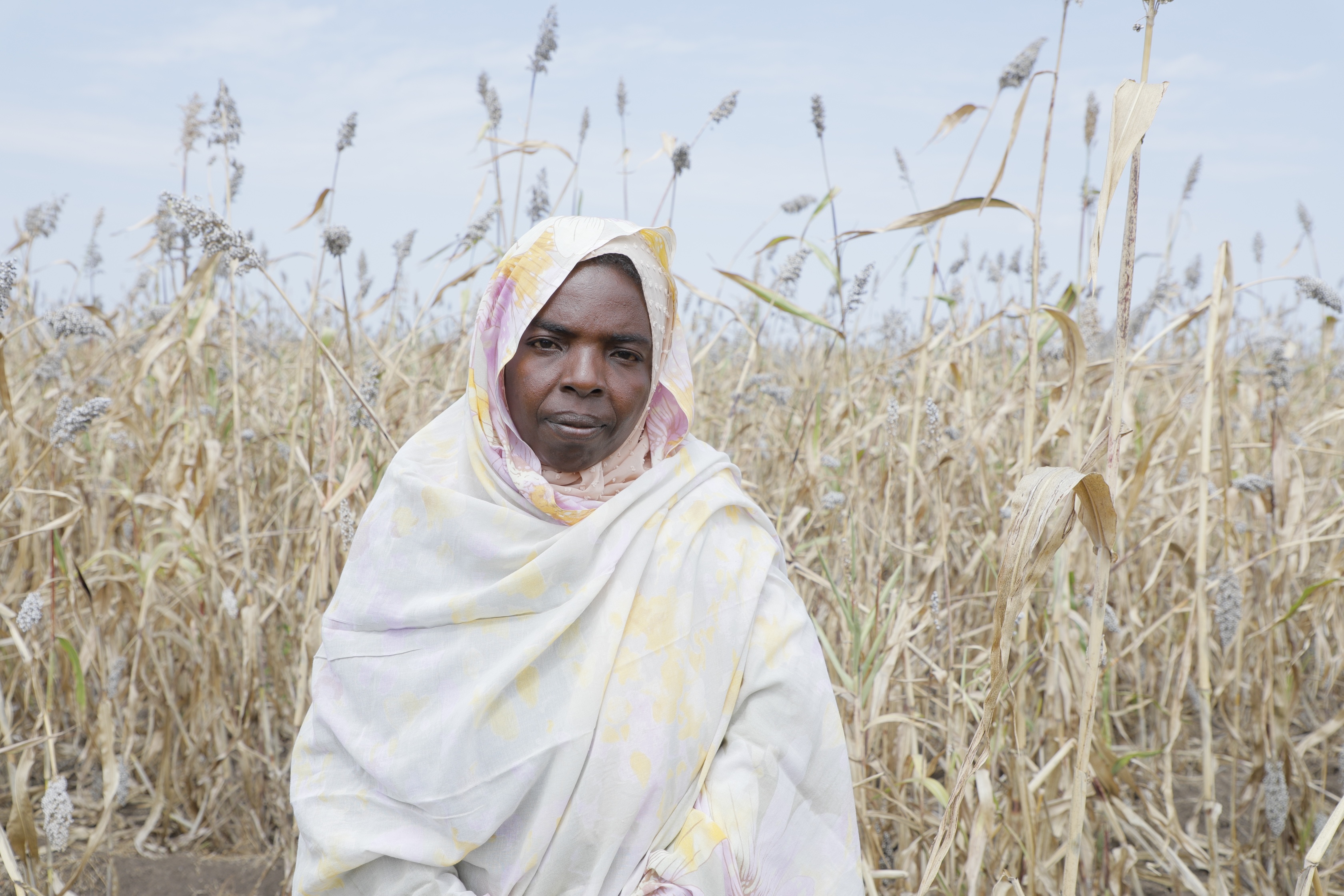Sudan: FAO issues stark warning over "deeply concerning" scale of hunger
Deputy Director-General Maurizio Martina briefs UN Security Council on the impact of conflict on food security

Almost 18 million people in Sudan are facing acute food insecurity - the highest number ever recorded during a harvest season.
©FAO / Khalid Ali
New York - The scale of hunger across Sudan is "deeply concerning" and requires an "immediate cessation of hostilities" as an essential first step in eliminating the risk of famine, Deputy Director-General of the Food and Agriculture Organization of the United Nations (FAO) Maurizio Martina today told a United Nations Security Council High-Level Open Debate on the protection of civilians in armed conflict.
After nearly 11 months of civil war, almost 18 million people in Sudan are facing acute food insecurity. This is the highest number ever recorded during a harvest season.
The latest IPC report shows that areas where the conflict has been more intense, including West Darfur, Khartoum, and South Kordofan, are those with populations facing the highest food insecurity (IPC Phase 3 or above).
Without urgent humanitarian assistance and access to basic commodities, people experiencing emergency levels of acute hunger or Integrated Phase Classification (IPC) Phase 4 - of which there are almost 5 million people - could slip into catastrophic food insecurity in the coming months.
Additionally, Sudan is facing the world's largest displacement crisis, with more than 8 million people having been displaced since the conflict started in April 2023.
Given the scale of the situation, "a peaceful and negotiated political solution and immediate cessation of hostilities to facilitate the delivery of urgent humanitarian assistance is an essential first step in eliminating the risk of famine," Martina told the High-Level debate.
Impact on agriculture
Sudan's economy heavily relies on agriculture, with about 65 percent of its population engaged in this sector. Due to the ongoing conflict, agricultural production has been restricted, major infrastructure and livelihoods have been damaged, trade flows have been disrupted, and prices have significantly increased. Additionally, humanitarian access has been constrained, resulting in large-scale displacement. The conflict has now also spread to the state of Al Jazirah, which produces approximately 50 percent of wheat and 10 percent of sorghum, essential crops for the country.
In this context, FAO on Tuesday issued its annual Crop and Food Supply Assessment Report on Sudan, which examined food production in 2023 and assessed food supply throughout the 18 states of the country.
Some of its key findings include:
- The performance of the 2023 main cereal production season was very poor due to the impact of the conflict, at 46 percent below the harvests of the previous year.
- The sharpest reductions were recorded in the Greater Kordofan and in the Greater Darfur regions, where the conflict is particularly intense. In these areas, cereal production is estimated at up to 80 percent below average. Alarmingly, in West Darfur State, widespread insecurity prevented farmers from accessing their fields, causing a total failure of the cropping season.
- Cereal import requirements in 2024, forecast at about 3.38 million tonnes, raise concerns about the financial and logistical capacity of the country to meet these import needs.
- The high production costs of cereals are likely to further inflate market prices, which are already at exceptionally high levels. In December 2023, prices of cereals were up to twice their already high levels of one year earlier.
Bleak outlook
With the country's main planting season now approaching, the outlook for food production in 2024 is "bleak," Martina warned.
However, experience shows that where farmers can access land and inputs, they will produce food, Martina said. Even during the fighting last year, FAO was able to distribute enough seed kits to enable 1 million farmers to produce enough food to feed over 13 million people for a year.
That is why time-sensitive and life-saving agricultural assistance is crucial to tackle the hunger crisis. FAO is calling on donors to fund time-critical and urgent agriculture activities to avoid worsening food security over the next 6-9 months, the Deputy Director-General said.
Contact
FAO News and Media (+39) 06 570 53625 [email protected]
Nicholas Rigillo FAO News and Media (Rome) [email protected]
